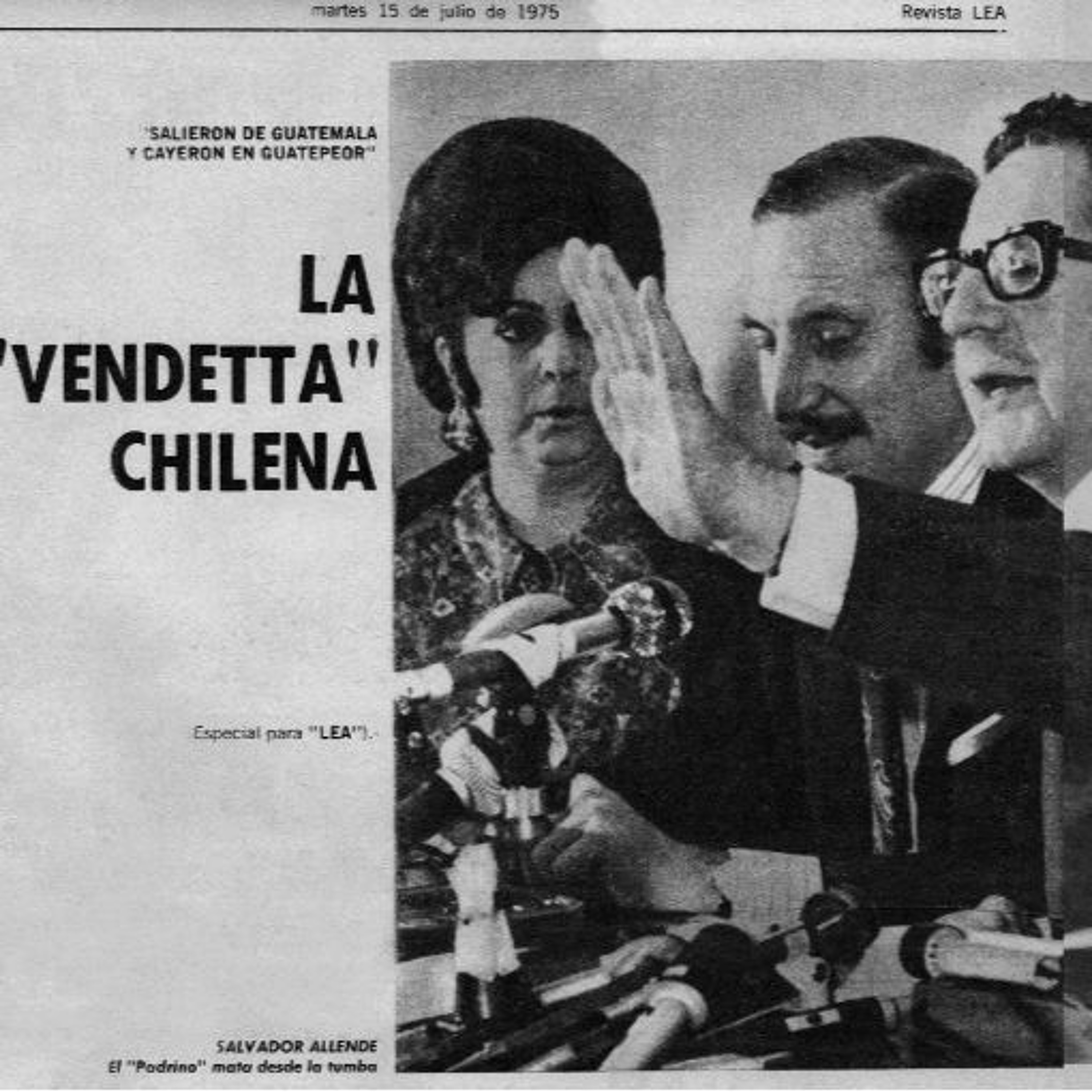WORT 89.9FM Madison
The Past Isn't Past: Assassination of Chilean Dissident Orlando Letelier

This Saturday, September 21st, is the anniversary of the 1976 car bomb assassination of Chilean diplomat Orlando Letelier and his American coworker Ronni Moffitt.
They were killed in Washington, DC under orders from Chilean dictator Pinochet. It was part of a lethal campaign against Chilean dissidents. Feature contributor Harry Richardson has the story.
Originally broadcast September 16, 2024. Public domain photo, excerpted from Articulo Completo de la Revista Argentina "Lea" del 15/07/1975.
- Broadcast on:
- 20 Sep 2024
- Audio Format:
- other
[music] This Saturday, September 21st, is the anniversary of the assassination of Chilean diplomat Orlando Latelier in a car bomb on the streets of Washington, D.C. The car bomb also killed his colleague, Ronnie Moffatt. The assassination was eventually traced back to General Augusto Pinochet of Chile, who was in the midst of a military-backed campaign against Chilean activists. The year was 1976. A few years earlier, Latelier had been a high-ranking government official in Chile under the democratically elected socialist government of Salvadori Ende. Following the 1973 US-backed coup that installed General Augusto Pinochet as President of Chile, Latelier was imprisoned and tortured. After his release, he moved to the US where he worked for the left-leaning Institute for Policy Studies, IPS. On the day of the bombing, Latelier had been giving two coworkers a right to work. They were a newly married couple. Ronnie was killed, but her spouse, Michael, escaped with minor runes. Cursing, the fascists who had killed his wife and also Latelier. Juan Pablo Latelier, one of Orlando's three sons, spoke to democracy now last year about his father. The younger Latelier had been serving in the Chilean House and Senate for 32 years. His brother, Francisco, is a Venice, California-based artist, muralist, writer, educator, and activist. Juan Pablo Latelier remembered the day of the bombing. He said, "I was at high school. We used to live in Bethesda, Maryland. Went to Walt Whitman High School. I was a senior. I was called over to the dean's office or to the principal's office. And when I got there, he mentioned to me that my father had been in an accident. He didn't give me more details. He only mentioned that my aunt was going to come to pick me up. A little while later, she did. Two of my brothers were in the car with her. I got in the car, sat in the back seat with one of my brothers, Francisco, who asked me if I knew what had happened. And I told him I did not. He simply said, "They put a bomb in Dad's car. They put a bomb in Dad's car." We drove to or into D.C. to Washington Hospital. We were listening to news briefs, reports of all types, different information, confusing information, one person dead, two persons dead, no information. When we got to the hospital, there was a lot of people, a lot of press, a lot of confusion. We were kind of hustled in, and suddenly we were in a room with my mother. She came to us. She hugged the three of us that were there, and what she said was, "The only thing I ask of all of you is that after all this is over, you won't hit anybody." That was her way of telling us that my father was dead. Juan Latelier spoke about the long struggle for justice to bring those responsible to account, especially Pinochet. He said, "This has been a very long, long fight. The Institute for Policy Studies saw Landau, along with the journalist, John Dinkas, did a big investigation. They searched for information, and the FBI also did its effort. There was a trial initially in the U.S. around 78, I will say, which unfortunately, despite all the information being available, it was considered a mistrial, amazingly, where the Cubans, who lived in the U.S., who collaborated with Pinochet's police or secret police, with Adina, they were off the hook, unfortunately. They had been identified. This was a big effort. Through many years, many human rights workers kept struggling to get justice done. Finally, I'd say, thanks to many people who pushed this effort, once we recovered democracy in Chile in the 90s, during the second democratic government we had, just on that occasion, the head of the Chilean secret police, Manuel Contreres, and another collaborator, Pedro Espinosa Bravo, were sentenced and condemned. Previously, the agent who went to the U.S. had gotten into a plea bargaining agreement. He had been tried in the U.S. He spent barely five years in jail, or seven years, after this terrorist attempt in Washington, D.C., the first one, the head occurred till then, on U.S. soil, where an American citizen was also assassinated, along with my father, Ronnie Carpin Moffat. But we have been able to advance justice. There are things that are pending. La Telier was in the U.S. to speak on the 47th anniversary of the assassination, had a ceremony attended by the current reformist Chilean President Gabrielle Borac, Congressman Jamie Raskin, and other officials. Raskin, along with Bernie Sanders, AOC, and other progressives, introduced a resolution in the Congress to, in La Telier's words, set the record straight. Tragically, this resolution never made it out of committee, but the struggle for justice, Verla Telier, Moffat, and the thousands of Chilean activists just appeared continues. For the past and the past, I'm Harry Richardson.
This Saturday, September 21st, is the anniversary of the 1976 car bomb assassination of Chilean diplomat Orlando Letelier and his American coworker Ronni Moffitt.
They were killed in Washington, DC under orders from Chilean dictator Pinochet. It was part of a lethal campaign against Chilean dissidents. Feature contributor Harry Richardson has the story.
Originally broadcast September 16, 2024. Public domain photo, excerpted from Articulo Completo de la Revista Argentina "Lea" del 15/07/1975.